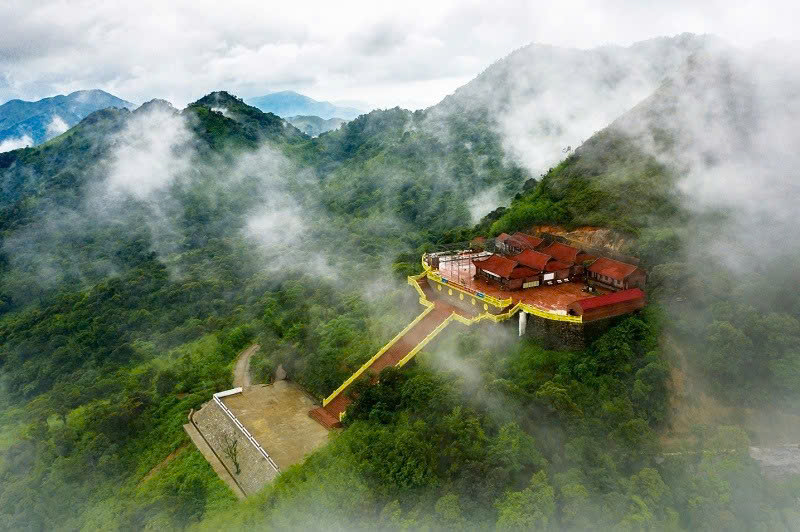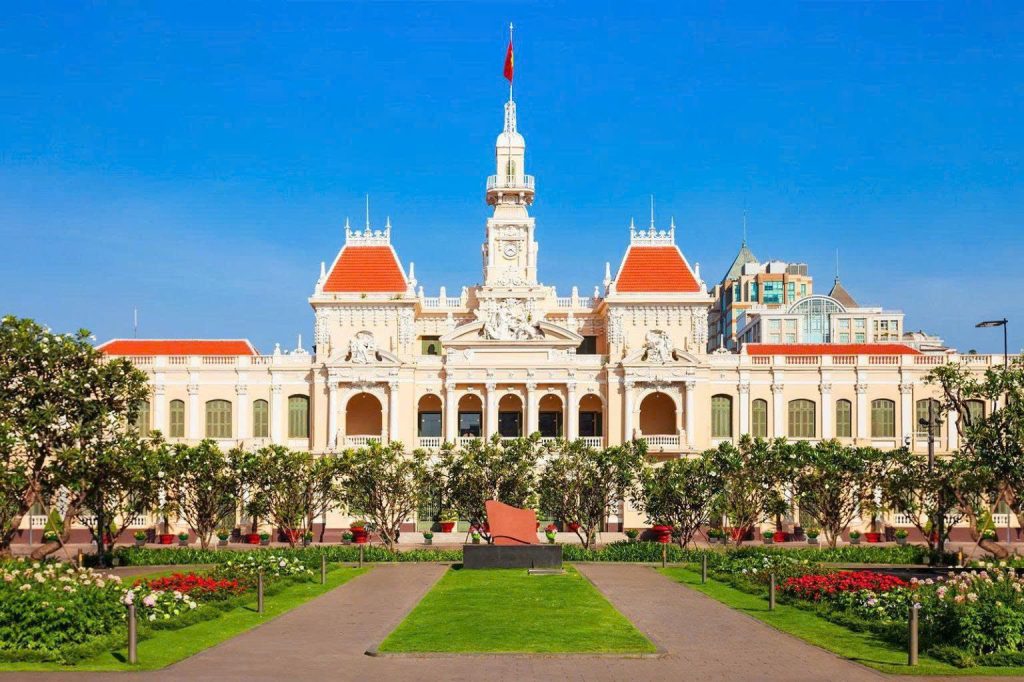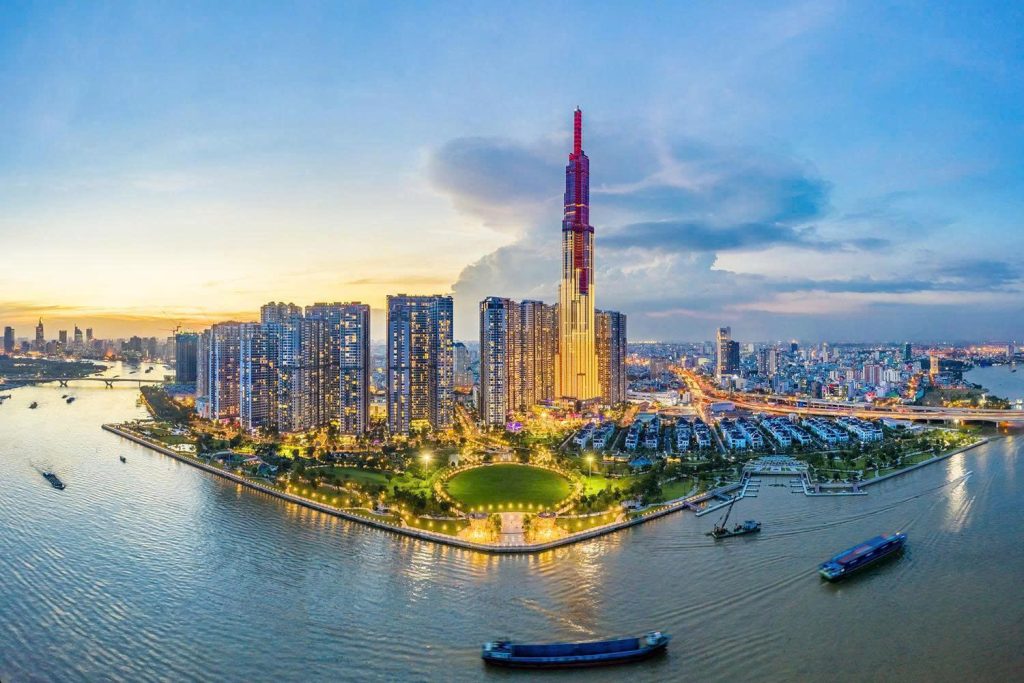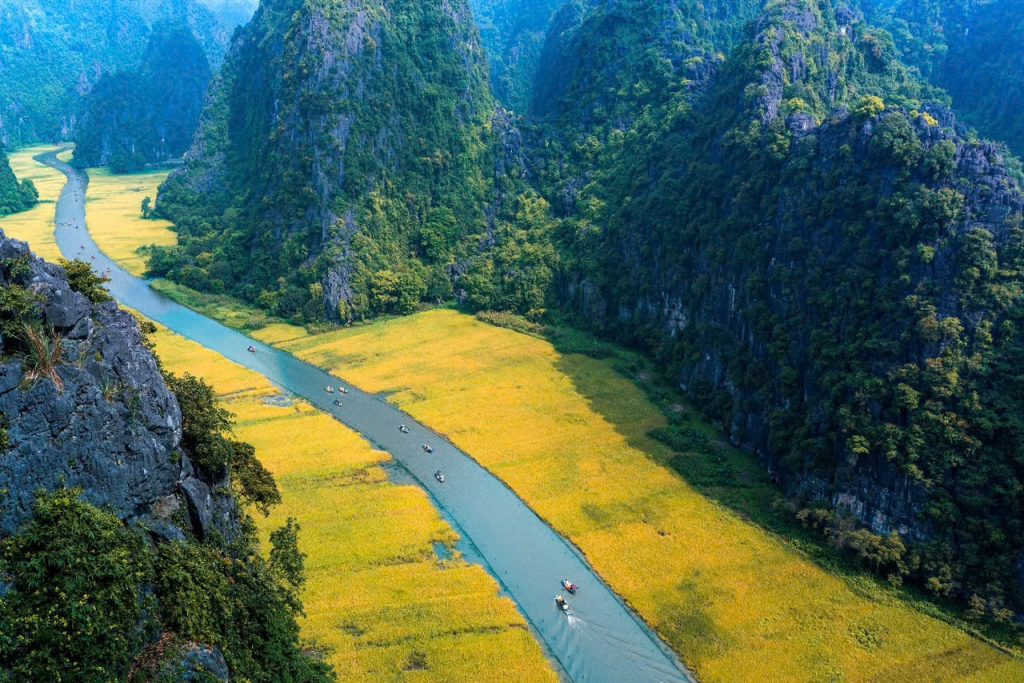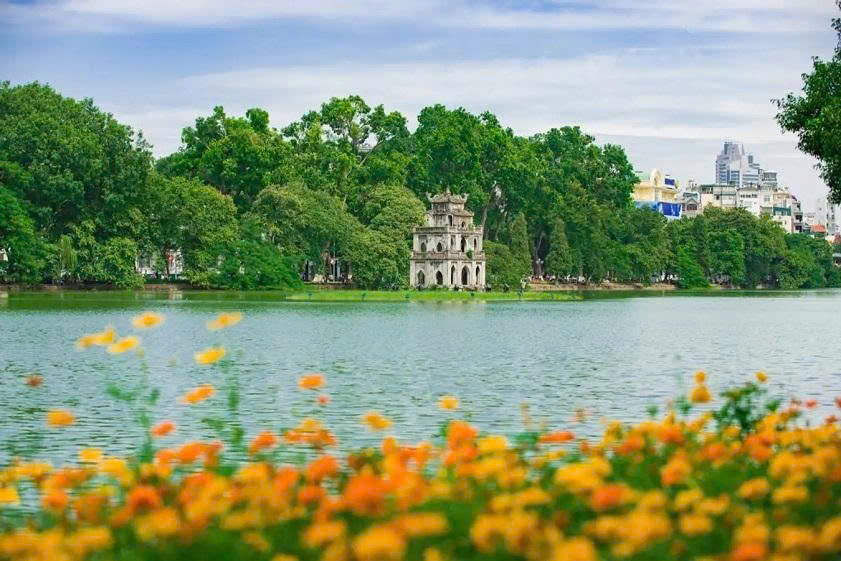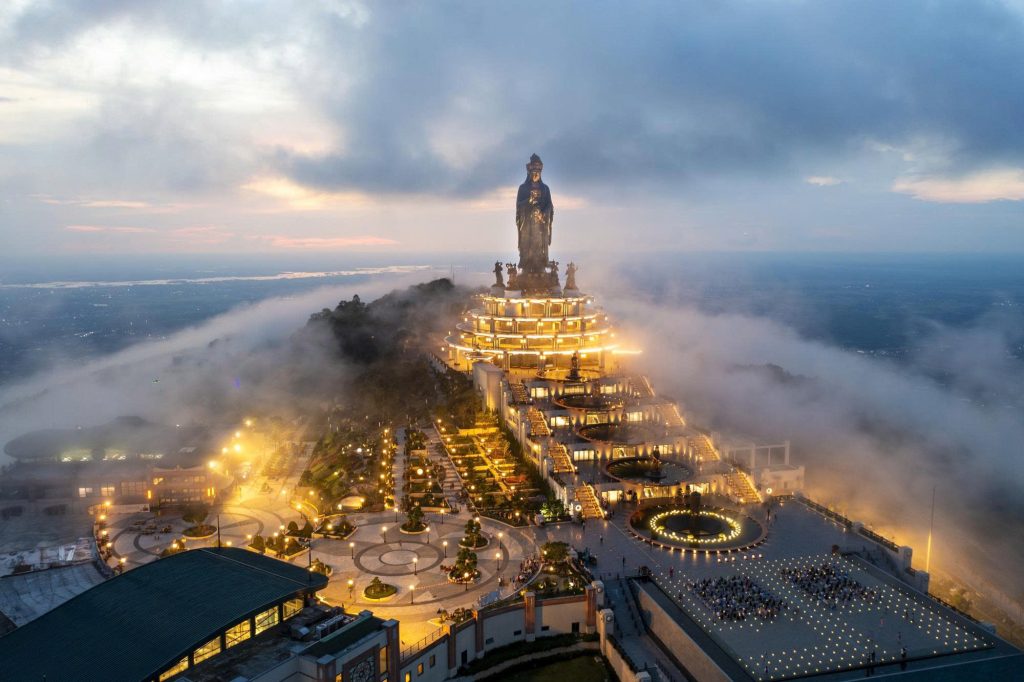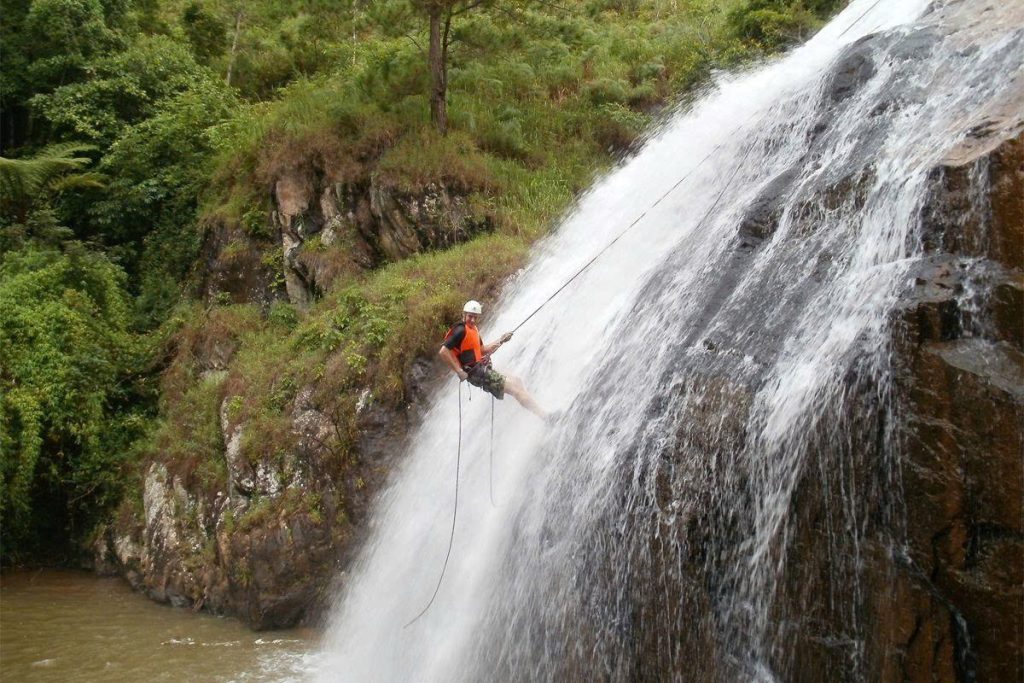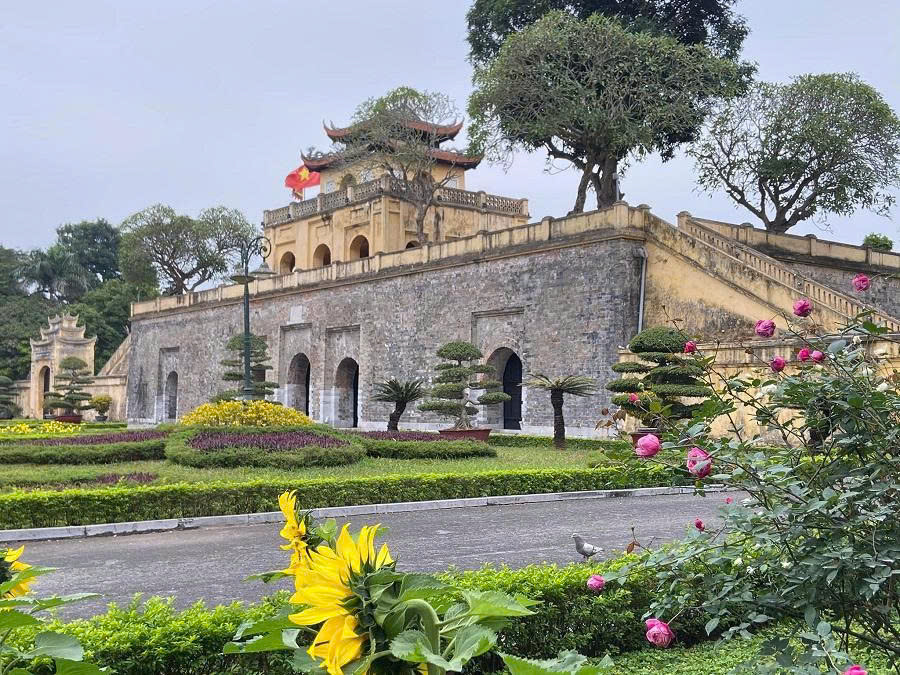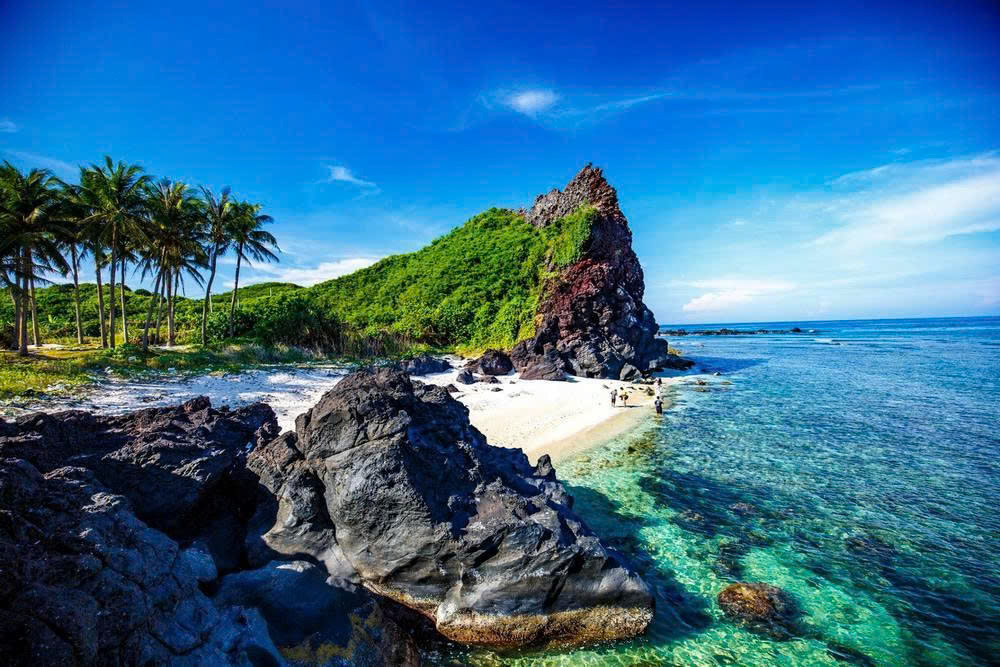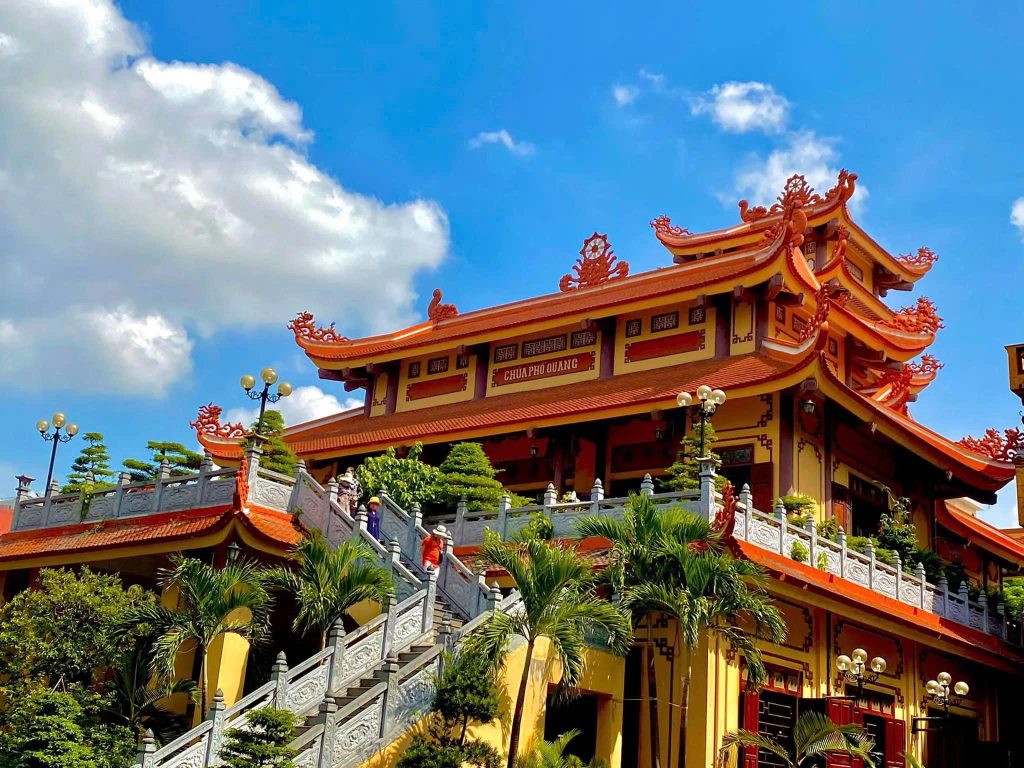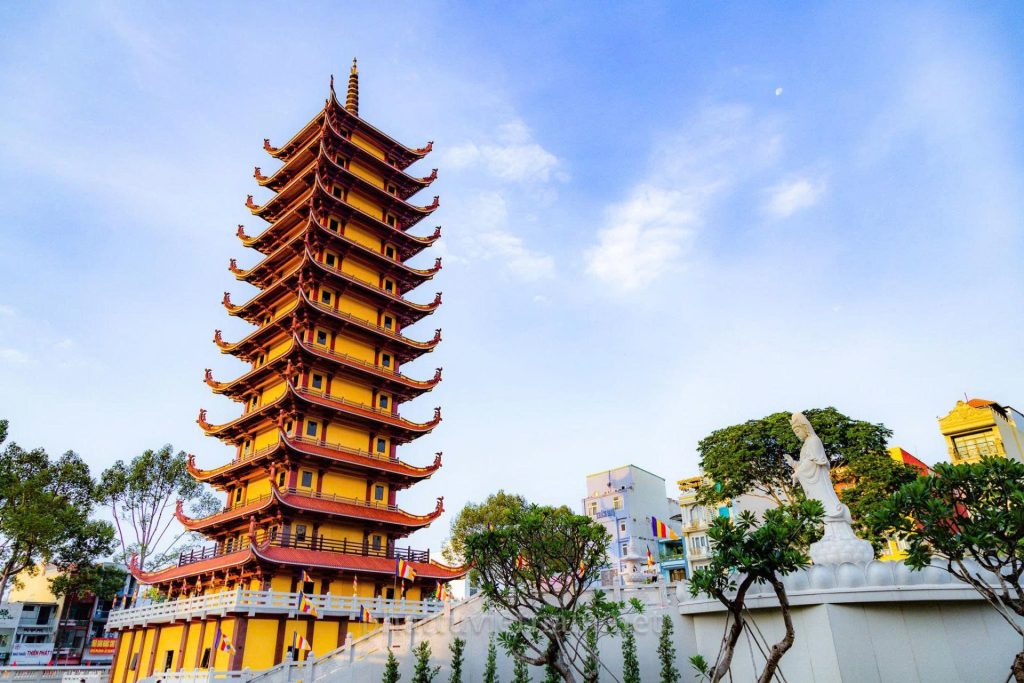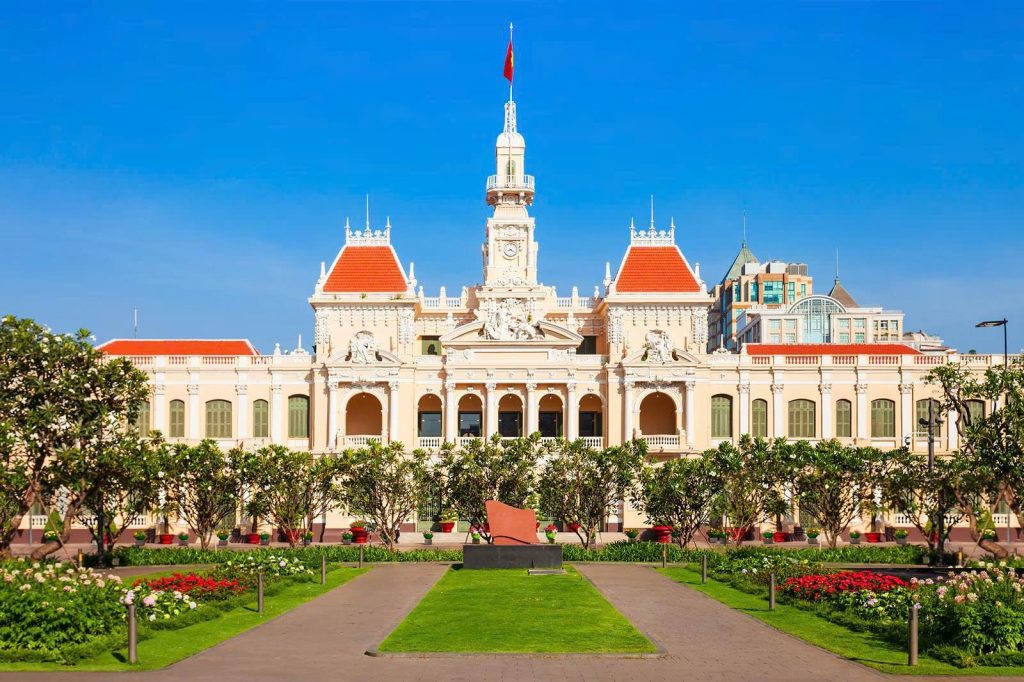Looking for a peaceful escape in Vietnam? Discover the top meditation retreats in 2025 with serene settings, mindful practices, and healing energy. Vietnam, with its rich Buddhist heritage, breathtaking natural landscapes, and deep-rooted spiritual traditions, is emerging as an idyllic destination for meditation retreats. Nestled away from vibrant metropolises, these getaways present a significant avenue to de-stress, rekindle self-awareness, and nurture a mindful state.
This article will explore the allure of a Vietnam meditation retreat, delve into the types of experiences available, highlight popular locations, and provide essential tips for choosing the perfect spiritual journey for you. Whether you’re a seasoned meditator or a curious beginner, prepare to embark on a path to inner peace amidst Vietnam’s enchanting beauty.
Why Choose Vietnam for Your Meditation Retreat?
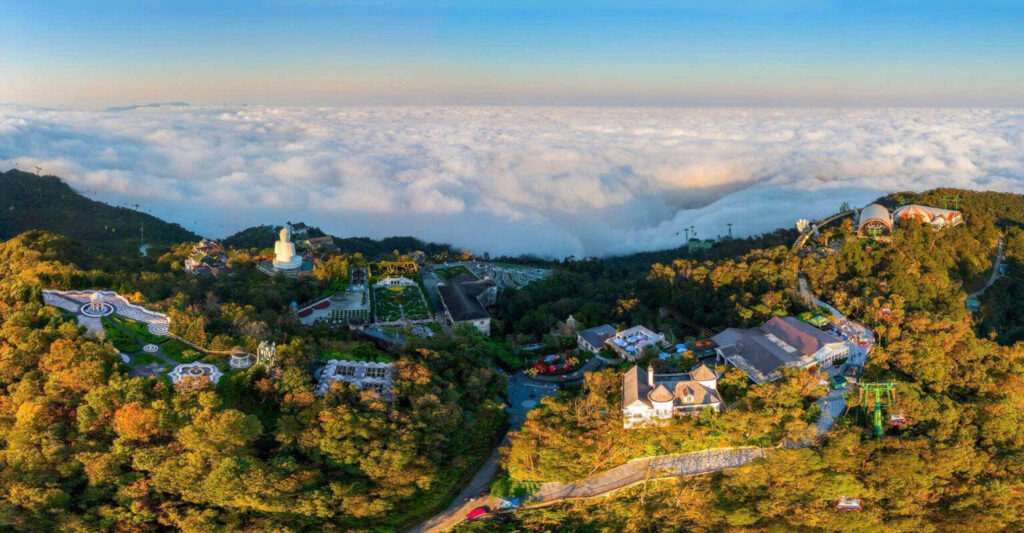
Vietnam’s appeal as a meditation destination stems from several unique factors:
- Profound Buddhist Heritage: Buddhism has been a cornerstone of Vietnamese culture for centuries, fostering a deep respect for spiritual practices and a strong network of temples and monasteries. This creates an authentic and supportive environment for meditation.
- Serene Natural Landscapes: From the misty mountains of Da Lat and Sapa to the tranquil beaches of Phu Quoc and the lush Mekong Delta, Vietnam offers diverse settings conducive to reflection and calm.
- Affordability: Compared to similar retreats in Western countries, meditation retreats in Vietnam often provide exceptional value for money, making spiritual growth accessible.
- Warm Hospitality: Known for their benevolent and hospitable character, the Vietnamese people create a supportive environment that enriches the retreat.
- Holistic Wellness: Many retreats integrate meditation with other wellness practices like yoga, healthy vegetarian cuisine, and traditional therapies, promoting overall well-being.
What to Expect from a Vietnam Meditation Retreat

When searching for a “Vietnam meditation retreat,” you’re likely seeking specific information to guide your decision-making and potentially book a transformative experience. This guide addresses common queries:
- Types of Retreats: From intensive Vipassana courses focusing on silent self-observation to gentler mindfulness retreats, Zen retreats, and yoga-integrated programs, Vietnam offers a spectrum of options.
- Locations: Discover where these spiritual sanctuaries are nestled, often in picturesque, secluded areas away from urban noise.
- Programs & Schedules: Get an insight into daily routines, including meditation sessions, teachings, mealtimes, and periods of reflection.
- Accommodation & Amenities: Learn about the living conditions, from simple monastic cells to comfortable rooms, and the facilities provided.
- Cost & Inclusions: Understand the pricing structures and what’s typically included in a retreat package.
- Suitability for Beginners vs. Experienced Meditators: Find out which retreats cater to different levels of practice.
Popular Destinations for Meditation Retreats in Vietnam
Vietnam boasts several regions that are particularly well-suited for meditation and spiritual exploration:
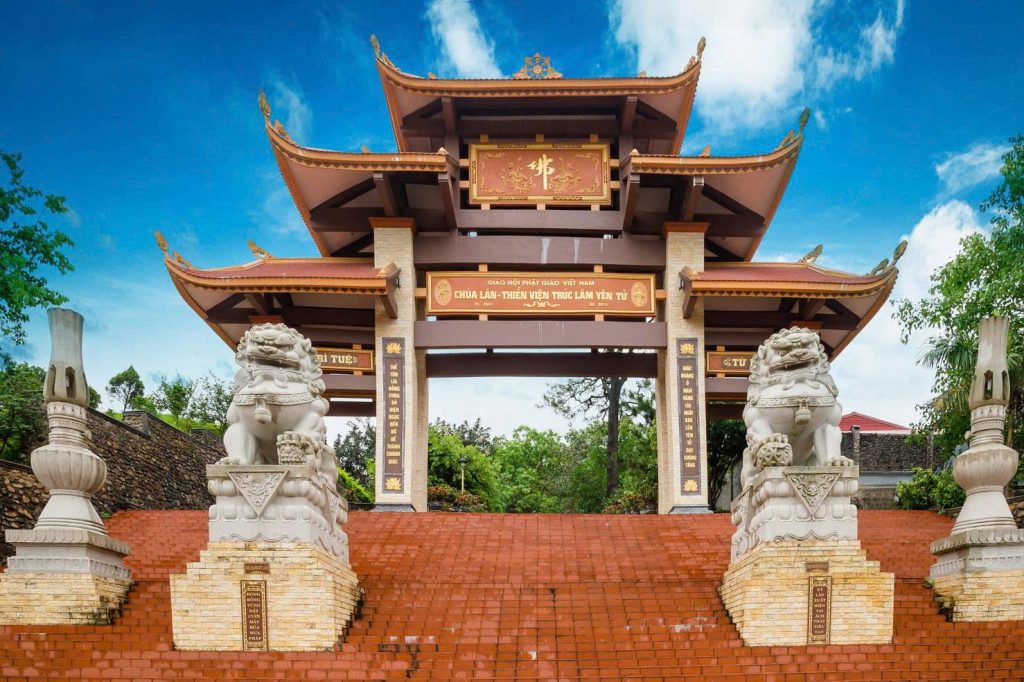
- Da Lat (Central Highlands): Known as the “City of Eternal Spring,” Da Lat’s cool climate, pine forests, and tranquil lakes make it an ideal setting.
- Thiền Viện Trúc Lâm Đà Lạt (Truc Lam Zen Monastery), a prominent Zen Buddhist monastery offering short courses and a peaceful environment. Thiền Viện Vạn Hạnh (Van Hanh Zen Monasery).
- Yen Tu Mountain (Northern Vietnam): A revered Buddhist pilgrimage site, offering a profound spiritual journey amidst stunning mountain scenery.
-
- Thiền Viện Trúc Lâm Yên Tử, home to the Truc Lam Yen Tu Zen Monastery, offers immersive retreat experiences.
- Hoi An & Da Nang (Central Coast): While known for their vibrant tourism, nearby quieter areas and specific centers offer serene escape.
- Some smaller private retreats or yoga studios offer meditation programs. The general peaceful ambiance of Hoi An can be conducive to mindfulness.
- Phu Quoc Island (Southern Vietnam): Beyond its beautiful beaches, some resorts and centers on the island are starting to offer wellness and meditation programs.
- Certain resorts with dedicated wellness facilities, or independent yoga and meditation studios.
- Remote & Rural Areas: Throughout the country, especially in the north (like Sapa or Ha Giang) or the Mekong Delta, smaller, less-known centers might offer authentic experiences.
Types of Meditation Retreats You Can Find

Understanding the various forms of meditation retreats will help you align your expectations with the offerings:
- Vipassana Retreats: Rooted in ancient Buddhist tradition, these typically involve “noble silence” (no talking, reading, writing) and intense focus on observing bodily sensations and mental phenomena to gain insight into the true nature of reality. They are often donation-based.
- Zen (Thiền) Retreats: Often found in Vietnamese monastic settings, these traditions focus on seated meditation (Thiền định), walking meditation (Thiền hành), and at times, koan contemplation, with the goal of nurturing a direct grasp of reality.
- Mindfulness Retreats: Often more accessible for beginners, these focus on cultivating present-moment awareness through various practices, including meditation, mindful eating, and gentle movement.
- Yoga and Meditation Retreats: These combine daily yoga practice with meditation sessions, often emphasizing breathwork (pranayama) and physical postures (asanas) as pathways to deeper meditative states.
- Wellness & Holistic Retreats: Broader in scope, these might include meditation alongside other therapies like massage, detox programs, healthy cuisine, and nature immersion, focusing on overall well-being.
RELATED: Top Famous Zen Monasteries in Vietnam
What to Expect During a Retreat
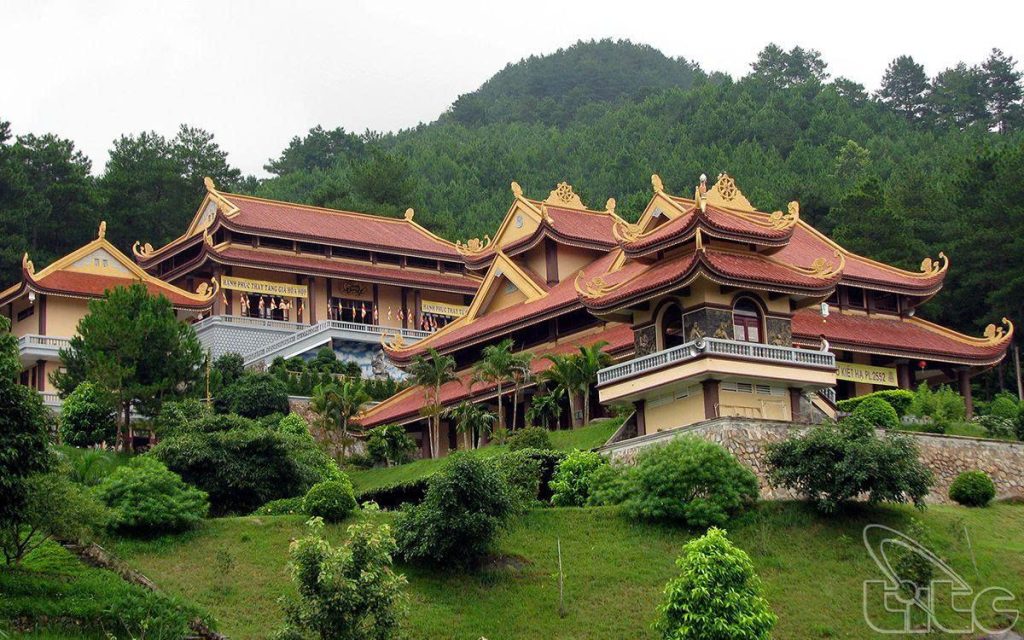
While programs vary, a typical meditation retreat in Vietnam might include:
- Noble Silence: Many retreats, especially Vipassana, emphasize silence to minimize distractions and encourage introspection.
- Daily Schedule: A structured routine often includes early morning wake-up, multiple meditation sessions (sitting and walking), group teachings or Dhamma talks, mealtimes, and periods for rest or light chores.
- Vegetarian Meals: Most retreats provide nutritious, often vegetarian or vegan, meals to support the practice.
- Guidance from Teachers: Experienced monks, nuns, or lay teachers provide instructions and guidance throughout the retreat.
- Simple Accommodation: Expect basic but clean accommodation, sometimes shared, to foster a sense of detachment from worldly comforts.
Choosing Your Perfect Vietnam Meditation Retreat: Key Considerations
To ensure your retreat aligns with your goals, consider these factors:
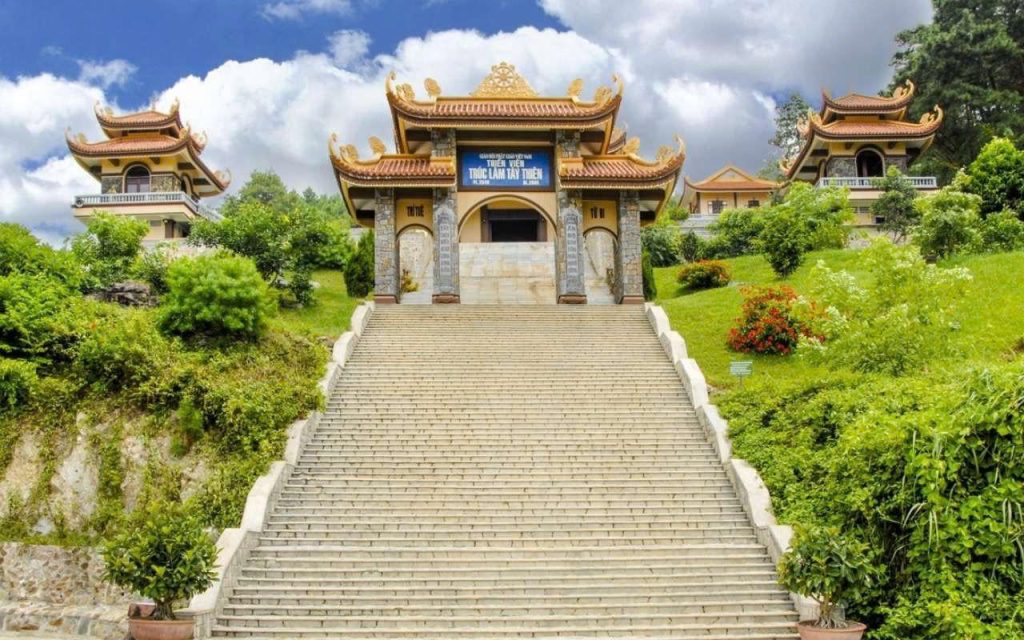
- Your Experience Level: Are you a complete beginner or an experienced meditator seeking deeper practice? Some retreats are more intensive and better suited for those with prior experience.
- Duration: Retreats can range from a weekend to 10 days or even longer. Begin with a more condensed timeframe if you are new to this practice.
- Style of Meditation: Research different traditions (Vipassana, Zen, Mindfulness) to see which resonates most with you.
- Location: Do you prefer mountains, beaches, or a quiet rural setting? Accessibility is also a factor.
- Language: While many centers cater to international visitors with English-speaking teachers, confirm this beforehand.
- Cost and Inclusions: Understand what the fee covers (accommodation, food, teachings) or if it’s donation-based.
- Reviews and Testimonials: Read feedback from previous participants to gauge the retreat’s atmosphere and effectiveness.
- Rules and Regulations: Be aware of any specific guidelines regarding dress code, technology use, or interaction with others.
Consider for Your Retreat Planning
When researching your retreat, keep these keys in mind for more targeted searches:
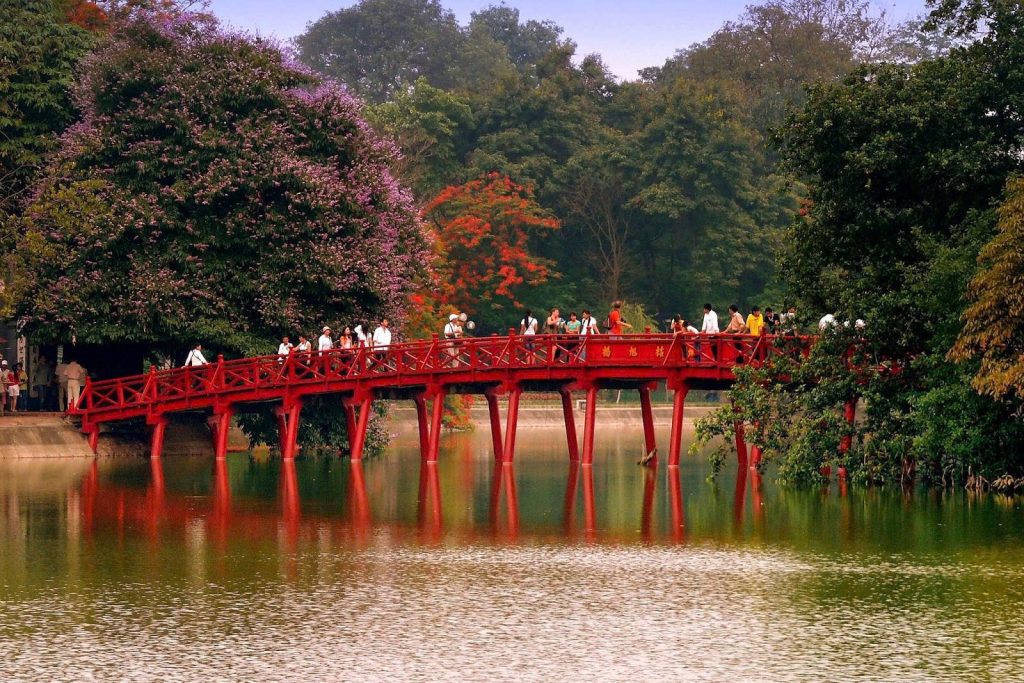
- Monasteries/Centers: Thiền Viện Trúc Lâm (Zen Monastery), Thiền Viện Vạn Hạnh, Phuoc Son Monastery (Vipassana).
- Cities/Provinces: Da Lat, Hanoi, Ho Chi Minh City, Hoi An, Da Nang, Sapa, Phu Quoc, Yen Tu, Vung Tau.
- Meditation Types: Practices such as Vipassana, Zen (Thiền), Mindfulness, Samatha, and Loving-Kindness (Metta).
- Related Practices: Yoga, Tai Chi, Qi Gong, Detox, Healthy Eating, Sound Healing.
- Transport: Vietnamese flights, various lodging possibilities, visa necessities, journey coverage.
- Spiritual Concepts: Buddhism, Dharma, Sangha, Sutta, Samsara, Nirvana.
RELATED: Wellness Retreats in Vietnam: Discover Serenity
A Vietnam meditation retreat offers more than just a break from daily life; it’s an invitation to embark on a profound journey of self-discovery and inner healing. Whether you seek to quiet a busy mind, deepen your spiritual practice, or simply find a peaceful sanctuary, Vietnam’s unique blend of cultural richness and natural beauty provides the perfect backdrop.

